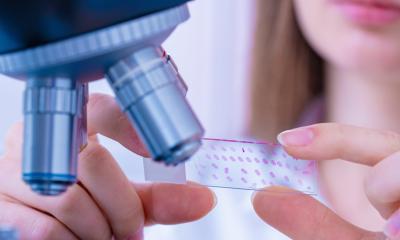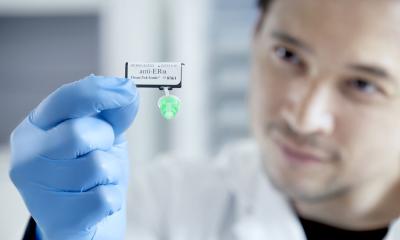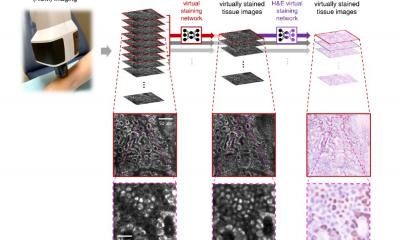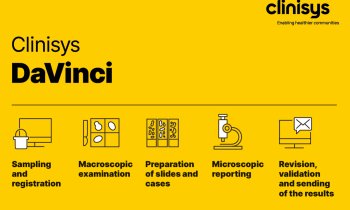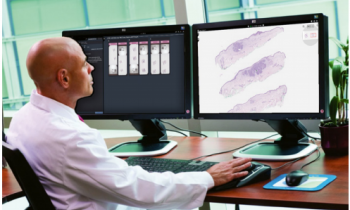News • First steps
On the way towards a digital histopathology service
The Norfolk and Norwich University Hospital (NNUH) has taken the first steps towards establishing a digital histopathology service, which will help to improve cancer care. New systems are being introduced to embrace new technology to track specimens, digitise slides and enable clinicians to analyse and report cases digitally on computers.
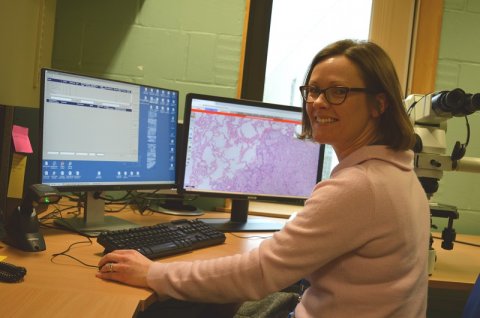
The NNUH has now become the first NHS trust in the East of England to scan and view patient’s biopsies digitally and ready for use in clinical multi-disciplinary meetings. The Trust has received more than £700,000 from the East of England Cancer Alliance to prime the first phase of the project, which is part of the five year NHS plan and Norfolk and Waveney STP regional digital strategy.
More than 62,000 cases equating to more than 260,000 slides are analysed and reported by histopathologists every year at NNUH Cotman Centre to help diagnose a range of conditions. Dr Katherine Sisson, Consultant Histopathologist and Lead for Digital Pathology in Norfolk and Waveney said: “Digitisation will lead to radical improvements through innovating laboratory processing and clinical specialist assessment of digital images. The new technology has been demonstrated to improve patient safety and service quality. Once digital replicas of slides are produced the images will be immediately available to clinicians for reporting from multiple locations, simultaneously for expert opinion and enable virtual multi-disciplinary clinical review. Also, it will facilitate the expansion of the histopathology service at NNUH and enable the development of an integrated regional and potentially national histopathology reporting service.”
Digitising histopathology will also facilitate and greatly improve the learning experience for both our postgraduate trainee histopathologists and also undergraduate doctors. Research opportunities also exist with pathology digitisation with the rapid advances of artificial intelligence in this field. The use of deep learning will assist the pathologist in providing more accurate and detailed reporting which will in time result in more patient centred care.
Anthony Lundrigan, Chief Information Officer at NNUH and for the Norfolk and Waveney STP, said: “Digital pathology is hugely exciting. It will revolutionise cellular pathology services and enable Norfolk and the Waveney to take its first step on the road to computational pathology, whereby the diagnostic process can be aided by using sophisticated artificial intelligence tools. This is great news for patient experience in our region and beyond.”
The first project phase started in 2019 and is due to complete Autumn 2020. The Trust plans to move to a 100 per cent digital pathology service by the end of 2021.
Source: Norfolk and Norwich University Hospital
16.06.2020



